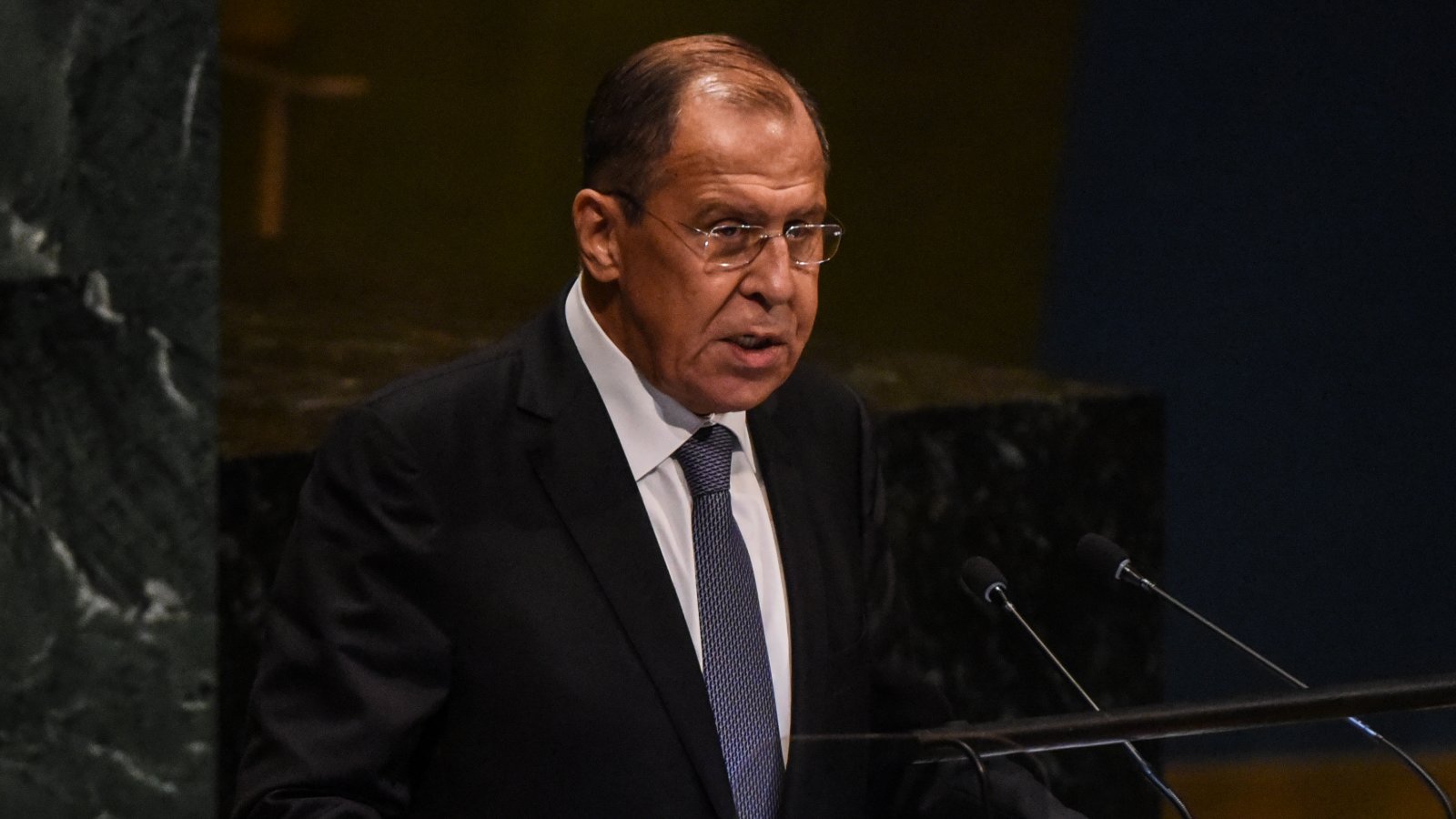
Russian Minister of Foreign Affairs Sergey Lavrov used his time before the United Nations General Assembly Friday to attack the United States, deny interference in other nations' domestic affairs – in spite of substantial evidence to the contrary – and label punishing Western sanctions "political blackmail."
Lavrov deflected accusations of Russian interference in the 2016 U.S. presidential election, a nerve agent attack in Britain and other meddling abroad — despite mounting evidence of a broad, coordinated influence campaign.
He criticized "baseless accusations of interference in the internal affairs of certain countries" and turned it around against the West, accusing unnamed forces of "overt endeavors to undermine democratically elected governments," in an apparent reference to U.S. and EU support for Russia's neighbors and the Syrian opposition.
(...)
He defended the 2015 deal aimed at curbing Iran's nuclear program, and said "we will do everything possible" to preserve it. Lavrov called Trump's decision to pull out of the deal part of a dangerous trend of unilateral measures that risk damaging the post-World War II world order.
Lavrov lobbied for strengthening the United Nations instead of the go-it-alone doctrine that Trump laid out in his General Assembly speech earlier this week, slamming the U.N.'s central tenet of multilateralism from inside its halls.
(...)
Russia is framing itself as a counterweight to U.S. power around the world, and Lavrov has been maneuvering in talks at the U.N. this week to shape the future of Syria, influence nonproliferation negotiations with North Korea and bolster Venezuela's embattled president.
Lavrov met Friday with Syrian Foreign Minister Walid al-Moallem at the U.N. Russia is rebuilding trade and military ties with Syria as it looks to a postwar future. While tensions linger over the last rebel stronghold of Idlib, Russia is determined to keep Syria solidly anchored in its sphere of influence over the long term, as a foothold in the Middle East and as a warning to the U.S. and its allies against future interference.
Russia's relations with the U.S. are at a post-Cold War low, and many Russian policies are directly aimed at countering American influence.
While Russian President Vladimir Putin skipped this year's U.N. gathering, Lavrov has made sure Russia's voice was heard, holding more than 20 meetings with world leaders and top diplomats this week.
At UN, Russia says meddling claims baseless, slams the US (AP)